-
 Bitcoin
Bitcoin $117500
2.15% -
 Ethereum
Ethereum $3911
6.19% -
 XRP
XRP $3.316
10.79% -
 Tether USDt
Tether USDt $1.000
0.01% -
 BNB
BNB $787.2
2.24% -
 Solana
Solana $175.2
4.15% -
 USDC
USDC $0.9999
0.00% -
 Dogecoin
Dogecoin $0.2225
8.40% -
 TRON
TRON $0.3383
0.28% -
 Cardano
Cardano $0.7868
6.02% -
 Stellar
Stellar $0.4382
9.34% -
 Hyperliquid
Hyperliquid $40.92
7.56% -
 Sui
Sui $3.764
7.63% -
 Chainlink
Chainlink $18.48
10.66% -
 Bitcoin Cash
Bitcoin Cash $582.1
1.88% -
 Hedera
Hedera $0.2601
6.30% -
 Avalanche
Avalanche $23.33
4.94% -
 Ethena USDe
Ethena USDe $1.001
0.02% -
 Litecoin
Litecoin $122.3
2.04% -
 UNUS SED LEO
UNUS SED LEO $8.969
-0.27% -
 Toncoin
Toncoin $3.339
0.86% -
 Shiba Inu
Shiba Inu $0.00001287
4.30% -
 Uniswap
Uniswap $10.43
7.38% -
 Polkadot
Polkadot $3.861
5.08% -
 Dai
Dai $1.000
0.02% -
 Bitget Token
Bitget Token $4.513
3.41% -
 Monero
Monero $267.7
-6.18% -
 Cronos
Cronos $0.1499
4.14% -
 Pepe
Pepe $0.00001110
5.15% -
 Aave
Aave $284.9
8.28%
How does DAO achieve decentralized decision-making?
DAOs use tokenized governance and smart contracts to enable decentralized decision-making, ensuring transparency and preventing manipulation through blockchain technology.
Mar 30, 2025 at 03:42 pm
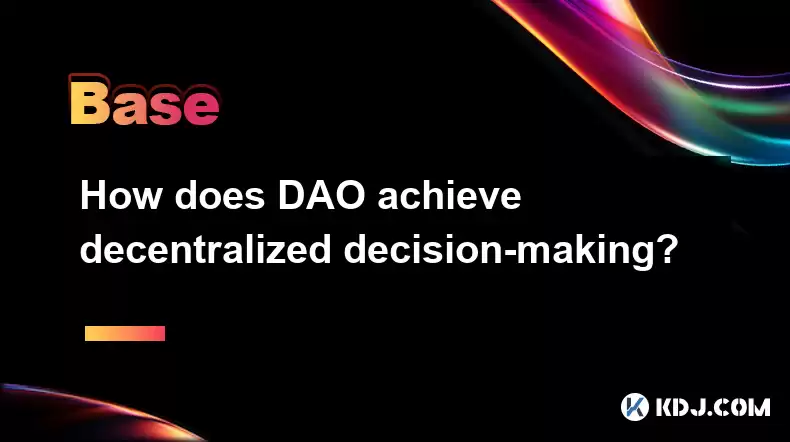
Understanding Decentralized Autonomous Organizations (DAOs) and Their Decision-Making Processes
Decentralized Autonomous Organizations (DAOs) represent a novel approach to organizational structure, aiming to eliminate centralized control and instead distribute power among its members. This is achieved through the use of blockchain technology and smart contracts. A core question surrounding DAOs is precisely how they manage to make decisions in a decentralized manner. This article will explore the mechanisms DAOs utilize to achieve this decentralized decision-making.
The fundamental principle behind DAO decentralized decision-making lies in the tokenized governance model. Members hold tokens that grant them voting rights proportional to their token holdings. This system ensures that decisions are not controlled by a single entity but are instead reflective of the collective will of the token holders. The more tokens a member holds, the more influence they have on the organization's direction.
The Role of Smart Contracts in DAO Governance
Smart contracts are self-executing contracts with the terms of the agreement between buyer and seller being directly written into lines of code. In the context of DAOs, smart contracts are crucial for automating the decision-making process. These contracts define the rules and procedures for proposals, voting, and the execution of decisions. This automation eliminates the need for intermediaries and ensures transparency and immutability. The code itself dictates how proposals are submitted, voted upon, and implemented, ensuring fairness and preventing manipulation.
Proposal Submission and Voting Mechanisms in DAOs
The process typically begins with a member submitting a proposal. This proposal outlines the suggested action or change within the DAO. The specifics of proposal submission vary across different DAOs, but generally involve outlining the problem, the proposed solution, and the required resources. Once submitted, the proposal enters a voting period. Members then cast their votes, often using their tokens to weigh their influence. The outcome of the vote, determined by a pre-defined threshold (e.g., simple majority, supermajority), dictates whether the proposal is accepted or rejected.
Different Voting Mechanisms Employed by DAOs
DAOs employ various voting mechanisms to suit their specific needs and goals. Some common mechanisms include:
- Simple Majority Voting: The proposal passes if more than 50% of the votes are in favor. This is the most straightforward method.
- Weighted Voting: Each vote carries a weight proportional to the number of tokens held by the voter. This allows token holders with larger stakes to have a proportionally larger influence on the outcome.
- Quadratic Voting: This method gives more weight to votes on less popular proposals, aiming to prevent the dominance of popular opinions.
- Delegated Voting: Members can delegate their voting rights to other trusted members, allowing for more efficient participation, especially in larger DAOs.
Ensuring Transparency and Immutability in DAO Decision-Making
The blockchain's inherent properties of transparency and immutability are crucial for maintaining trust and accountability within DAOs. All proposals, votes, and outcomes are recorded on the blockchain, making them publicly auditable. This prevents manipulation and ensures that all members have access to the same information. The immutability of the blockchain ensures that once a decision is made and recorded, it cannot be altered or erased, promoting fairness and preventing retroactive changes.
Addressing Potential Challenges in DAO Decentralized Governance
While DAOs offer a compelling vision of decentralized governance, several challenges remain. One key challenge is the potential for attacks or manipulation. Although the smart contracts are designed to be secure, vulnerabilities can exist, potentially allowing malicious actors to influence the decision-making process. Furthermore, participation rates can be a concern. If a significant portion of token holders do not participate in voting, the decisions may not accurately reflect the collective will of the community. Ensuring sufficient participation and robust security measures are crucial for the effective functioning of DAOs.
The Evolution of DAO Decision-Making Mechanisms
The field of DAO governance is constantly evolving. New mechanisms and techniques are being developed to address the challenges mentioned above and improve the efficiency and fairness of the decision-making process. Research into advanced voting mechanisms, improved security protocols, and better user interfaces is ongoing, aiming to refine the DAO model. This continuous development is essential for the long-term success and widespread adoption of DAOs.
The Future of Decentralized Decision-Making in DAOs
The future of DAOs likely involves further innovation in governance mechanisms. We might see more sophisticated voting systems that incorporate elements of liquid democracy or even artificial intelligence to assist in decision-making. The integration of other technologies, such as zero-knowledge proofs, could enhance privacy and security. The evolution of DAO governance will be crucial in determining the extent to which DAOs can successfully realize their potential as a new form of organization.
Frequently Asked Questions
Q: What are the benefits of decentralized decision-making in DAOs?
A: Decentralized decision-making in DAOs promotes transparency, fairness, and resistance to censorship. It prevents single points of failure and fosters community ownership.
Q: How can I participate in DAO decision-making?
A: Participation usually involves acquiring governance tokens of the specific DAO. The amount of tokens you hold determines your voting weight. Check the DAO's website for specific instructions on participation.
Q: What are the risks associated with DAO governance?
A: Risks include smart contract vulnerabilities, low participation rates, and the potential for manipulation by malicious actors. Careful due diligence and participation are crucial to mitigate these risks.
Q: How are disputes resolved in a DAO?
A: Dispute resolution mechanisms vary across DAOs. Some rely on community arbitration, while others may utilize external dispute resolution services. The specifics are typically defined in the DAO's governing documents.
Q: Are DAOs truly decentralized?
A: The level of decentralization varies across different DAOs. Some DAOs may have more centralized aspects due to the structure of their governance tokens or the concentration of token holdings. True decentralization is an ongoing goal.
Disclaimer:info@kdj.com
The information provided is not trading advice. kdj.com does not assume any responsibility for any investments made based on the information provided in this article. Cryptocurrencies are highly volatile and it is highly recommended that you invest with caution after thorough research!
If you believe that the content used on this website infringes your copyright, please contact us immediately (info@kdj.com) and we will delete it promptly.
- Tron's Sell-Off Spurs Altcoin Shift: What's Next for TRX?
- 2025-08-08 08:30:12
- RUVI Presale: Is the Growth Potential Real?
- 2025-08-08 09:10:12
- Sleep Token's US Takeover: Thornhill Rides the 'Even In Arcadia' Wave
- 2025-08-08 08:30:12
- FTT Token's Wild Ride: Creditor Repayments vs. Market Drop - A New Yorker's Take
- 2025-08-08 07:10:12
- Floki Crypto Price Prediction: Riding the Robinhood Rocket or Just a Meme?
- 2025-08-08 07:15:12
- EigenLayer, Restaking, and Ethereum: Navigating the Hype and the Hazards
- 2025-08-08 06:30:12
Related knowledge
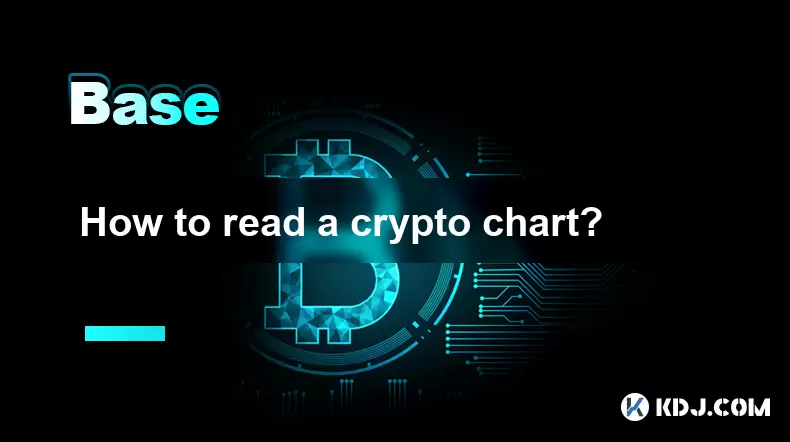
How to read a crypto chart?
Aug 08,2025 at 10:35am
Understanding the Basics of a Crypto ChartA crypto chart is a visual representation of the price movements of a cryptocurrency over time. These charts...
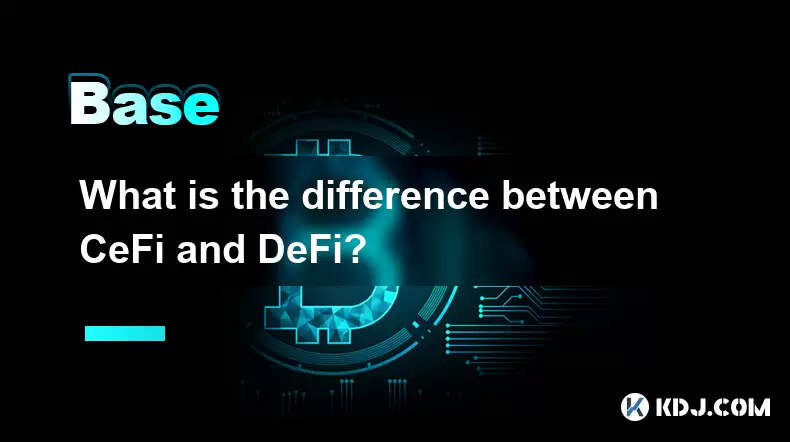
What is the difference between CeFi and DeFi?
Jul 22,2025 at 12:28am
Understanding CeFi and DeFiIn the world of cryptocurrency, CeFi (Centralized Finance) and DeFi (Decentralized Finance) represent two distinct financia...
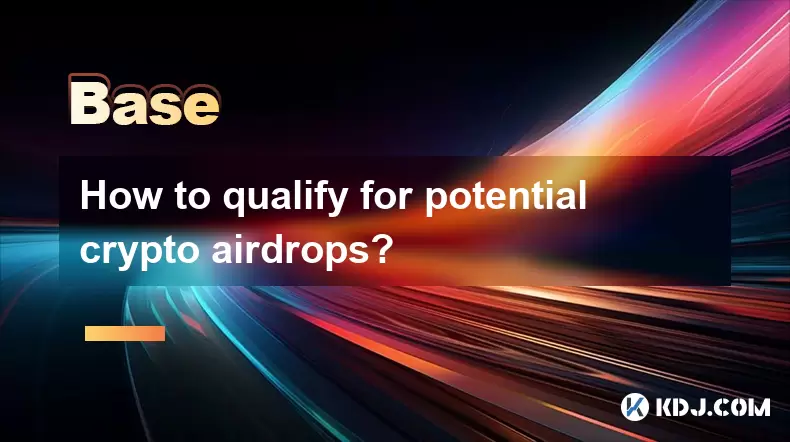
How to qualify for potential crypto airdrops?
Jul 23,2025 at 06:49am
Understanding What Crypto Airdrops AreCrypto airdrops refer to the distribution of free tokens or coins to a large number of wallet addresses, often u...
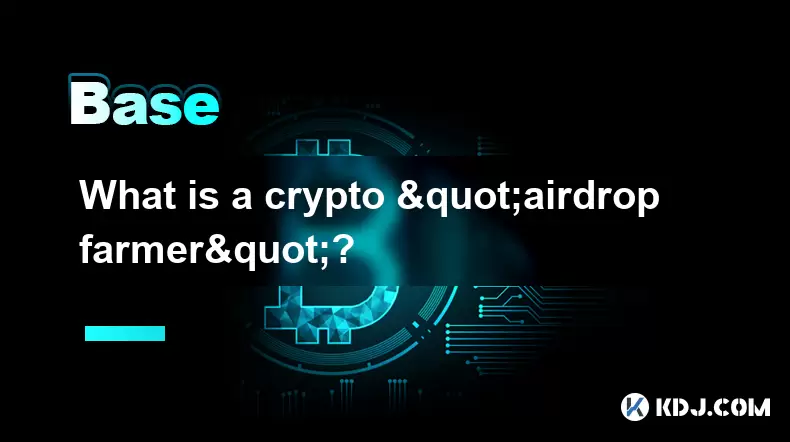
What is a crypto "airdrop farmer"?
Jul 24,2025 at 10:22pm
Understanding the Role of a Crypto 'Airdrop Farmer'A crypto 'airdrop farmer' refers to an individual who actively participates in cryptocurrency airdr...
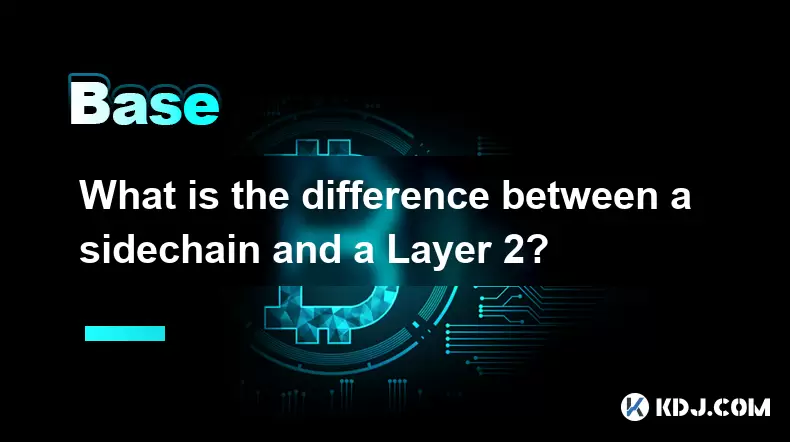
What is the difference between a sidechain and a Layer 2?
Jul 20,2025 at 11:35pm
Understanding the Concept of SidechainsA sidechain is a separate blockchain that runs parallel to the main blockchain, typically the mainnet of a cryp...
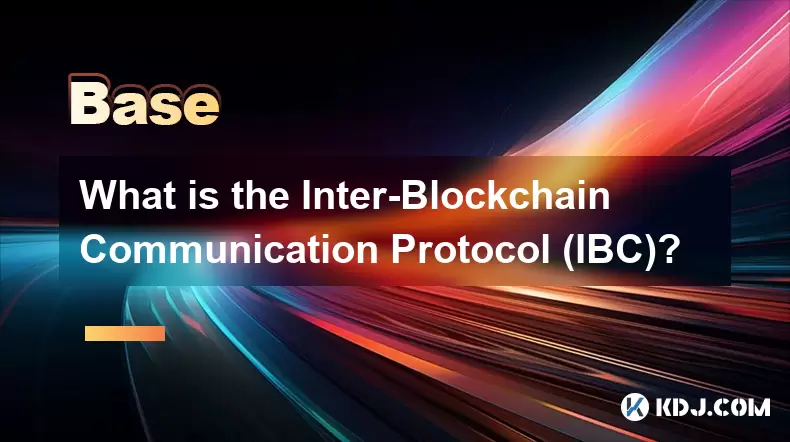
What is the Inter-Blockchain Communication Protocol (IBC)?
Jul 19,2025 at 10:43am
Understanding the Inter-Blockchain Communication Protocol (IBC)The Inter-Blockchain Communication Protocol (IBC) is a cross-chain communication protoc...

How to read a crypto chart?
Aug 08,2025 at 10:35am
Understanding the Basics of a Crypto ChartA crypto chart is a visual representation of the price movements of a cryptocurrency over time. These charts...

What is the difference between CeFi and DeFi?
Jul 22,2025 at 12:28am
Understanding CeFi and DeFiIn the world of cryptocurrency, CeFi (Centralized Finance) and DeFi (Decentralized Finance) represent two distinct financia...

How to qualify for potential crypto airdrops?
Jul 23,2025 at 06:49am
Understanding What Crypto Airdrops AreCrypto airdrops refer to the distribution of free tokens or coins to a large number of wallet addresses, often u...

What is a crypto "airdrop farmer"?
Jul 24,2025 at 10:22pm
Understanding the Role of a Crypto 'Airdrop Farmer'A crypto 'airdrop farmer' refers to an individual who actively participates in cryptocurrency airdr...

What is the difference between a sidechain and a Layer 2?
Jul 20,2025 at 11:35pm
Understanding the Concept of SidechainsA sidechain is a separate blockchain that runs parallel to the main blockchain, typically the mainnet of a cryp...

What is the Inter-Blockchain Communication Protocol (IBC)?
Jul 19,2025 at 10:43am
Understanding the Inter-Blockchain Communication Protocol (IBC)The Inter-Blockchain Communication Protocol (IBC) is a cross-chain communication protoc...
See all articles

























































































